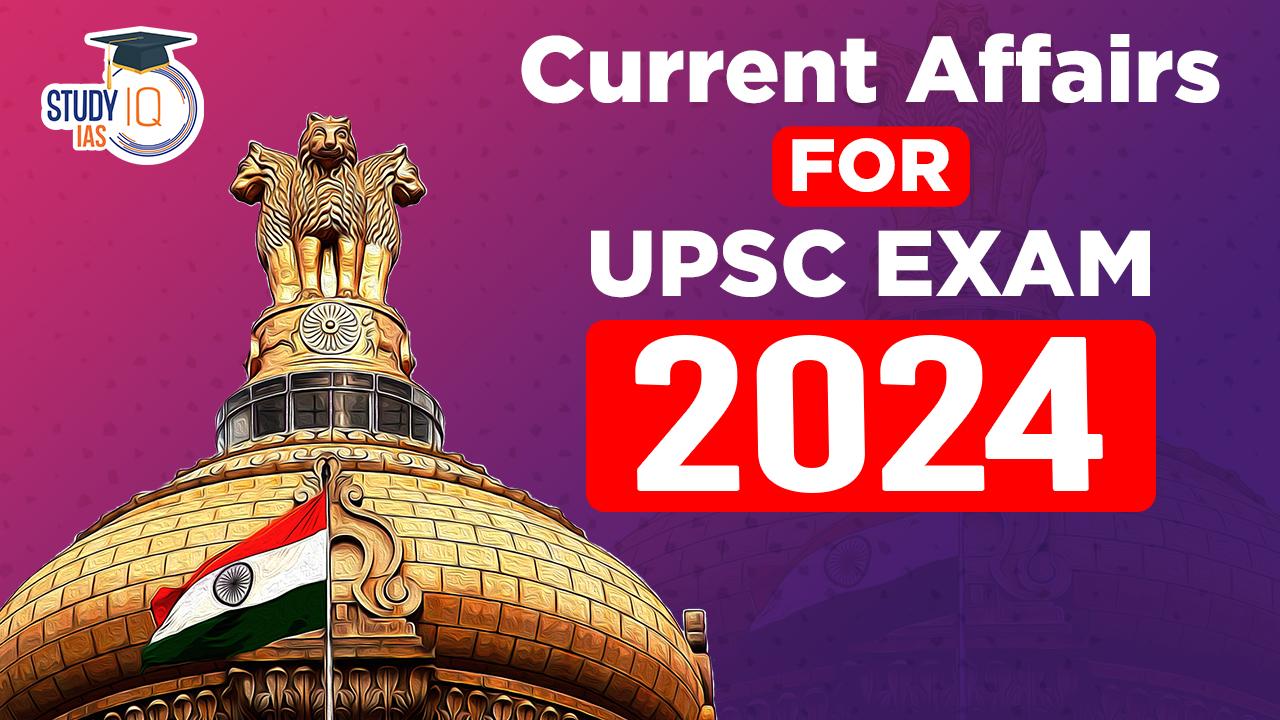Table of Contents
Citizenship (Amendment) Act
- The Citizenship Amendment Act (CAA) rules were notified by the Ministry of Home Affairs (MHA), four years after the act was passed by Parliament.
- The CAA expedites citizenship for six non-Muslim communities — Hindu, Sikh, Buddhist, Parsi, Christian, and Jain — from Pakistan, Afghanistan, and Bangladesh.
- The CAA is contested in the Supreme Court, with fresh pleas seeking to stay the implementation of the newly notified rules.
Provisions and Exemptions
- Amendment to Citizenship Act, 1955: A new proviso was added to Section 2(1)(b) to define “illegal migrants,” making specific undocumented immigrants eligible for citizenship.
- Exemptions for Tribal Areas: Tribal areas in Assam, Meghalaya, Mizoram, and Tripura are excluded from the CAA, with Inner Line Permit (ILP) required for entry.
- Procedural Changes in Citizenship Granting:
- Passport and Visa Requirements: The rules now waive the requirement of a “valid passport” or Indian visa for citizenship applications from the specified communities.
- Alternative Documentation: “Any document” indicating ancestry from the specified countries or a certificate from an elected local body member can now suffice for proving nationality.
| Fact |
|
Concerns and Potential Impacts
- Impact on Muslims: The combination of the CAA with the proposed National Register of Indian Citizens (NRIC) could disproportionately affect Muslims, as non-Muslims may use the CAA to secure citizenship if excluded from the NRIC.
- The 2021 Assam NRIC left over 19 lakh people out of the citizenship register.
- Constitutionality Challenge: Petitioners argue that it violates Article 14 of the Constitution by using religion as a basis for citizenship.
- Assam Accord (Section 6A) Subversion Claims: Petitioners claim that the CAA undermines the 1985 Assam Accord, which sets March 24, 1971, as the cut-off for recognizing foreigners without a religious distinction.
- Verdict on Section 6A: The CJI-led Constitution Bench has reserved its verdict on Section 6A’s validity, with historical and humanitarian implications being considered.
We’re now on WhatsApp. Click to Join
Paytm – Third Party Application Provider
Context: Paytm has received approval from the National Payments Corporation of India (NPCI) to operate as a third-party application provider (TPAP) for Unified Payments Interface (UPI) services.
More in News
- This authorization allows Paytm to offer UPI payment solutions directly to users, including those through mobile wallets, other merchant apps, or any platform utilising UPI for payments.
- Previously, all UPI transactions through Paytm were processed through Paytm Payments Bank (PPB), an associate company of One97 Communications Ltd, which owns Paytm.
- The Reserve Bank of India (RBI) restricted Paytm Payments Bank from onboarding new customers due to concerns over its process of verifying customer credentials and managing risks.
- Following the RBI’s restrictions, PPB had to address these concerns.
- With the RBI’s mandate, no new TPAP will be permitted unless they comply with the regulatory requirements for UPI payment services.
- Paytm’s approval by the NPCI to operate as a TPAP will enable the use of its technology by other banks for UPI services.
- One97 Communications, advised by NPCI, must complete the migration of its existing UPI user base to the new TPAP service, adhering to the provided regulations and timelines.
About NPCI
- Function: Umbrella organisation operating retail payment and settlement systems in India.
- Origin: Established by the Reserve Bank of India (RBI) and Indian Banks’ Association (IBA) under Payment and Settlement Systems Act (2007).
- Structure:
- Not-for-profit company under Section 8 of Companies Act (2013).
- Promoted by ten major banks (SBI, PNB, Citibank, etc.).
- Regulatory board with nominees from RBI and core promoter banks.
- Headquarters in Mumbai.
- Focus:
- Innovation in retail payment systems using technology.
- Increased efficiency and wider reach of payment solutions.
- Payment Systems Operated:
- National Financial Switch (NFS)
- Immediate Payment Service (IMPS)
- Aadhaar-enabled Payment System (AEPS)
- National Automated Clearing House (NACH)
- Services Offered:
- Bharat Bill Payment Interface (BBPI): Single platform for bill payments.
- Immediate Payment Service (IMPS): 24/7 instant fund transfer service.
- RuPay: Affordable debit, credit, and prepaid cards. Over 300 million were issued in India.
- USSD Services: Mobile banking without the internet or smartphone is required.
- BHIM: UPI-based app for making payments using VPA or mobile number.
- Unified Payments Interface (UPI): Smartphone-based fund transfer directly between bank accounts.
Examples and Case Studies for Value Addition
Population And Associated Issues: The recent report by the United Nations Inter-agency Group for Child Mortality Estimation noted that the annual number of global under-5 deaths in 2022 declined by more than half.


 Pariksha pe Charcha 2025, Overview, Even...
Pariksha pe Charcha 2025, Overview, Even...
 National Policy on Framework on Agricult...
National Policy on Framework on Agricult...
 How Scientists used Scotch tape to Creat...
How Scientists used Scotch tape to Creat...




















